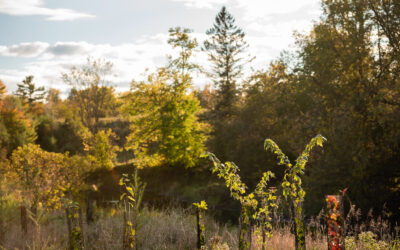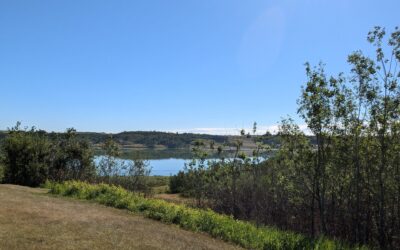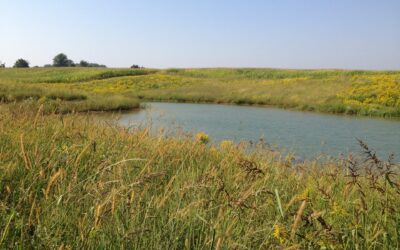Biodiversity is already increasing on the first ALUS projects in Leduc County, Alberta.
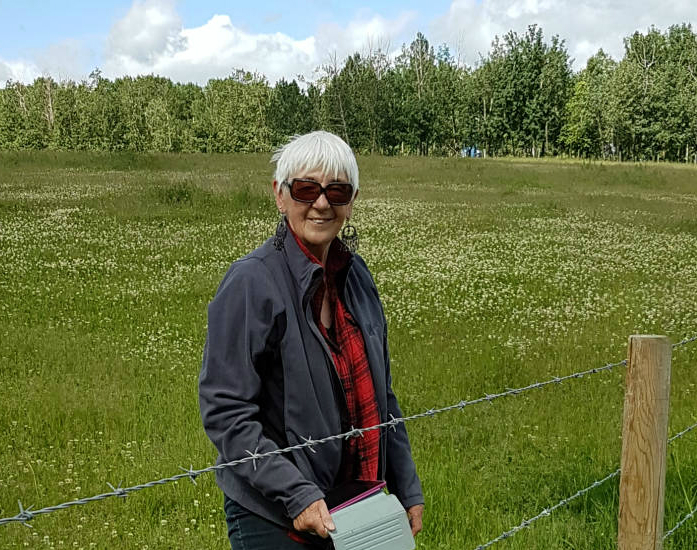
Meet ALUS Wetaskiwin-Leduc’s first participant, Pearl Gregor, who operates a pastured beef cow/calf operation on 211 acres in Leduc County, Alberta.
The farm belonging to ALUS Wetaskiwin-Leduc’s original participant, Pearl Gregor, is located within one of Leduc County’s Environmentally Significant Areas, near the Beaver Hills UNESCO Biosphere Reserve.
“Pearl is a small producer who has incorporated different programs and beneficial practices into her operation,” says Kim Barkwell, coordinator of the ALUS Wetaskiwin-Leduc program. “She is always looking for ways to improve and reduce her environmental footprint.”
Established in 2016, the ALUS Wetaskiwin-Leduc program is a partnership between Leduc County, the County of Wetaskiwin and ALUS Canada, A Weston Family Initiative.
It was in its very first year of operation that the program established some interesting ALUS projects on Gregor’s land. And, during a public tour on September 19, 2017, the ALUS Wetaskiwin-Leduc team was proud to showcase the results.
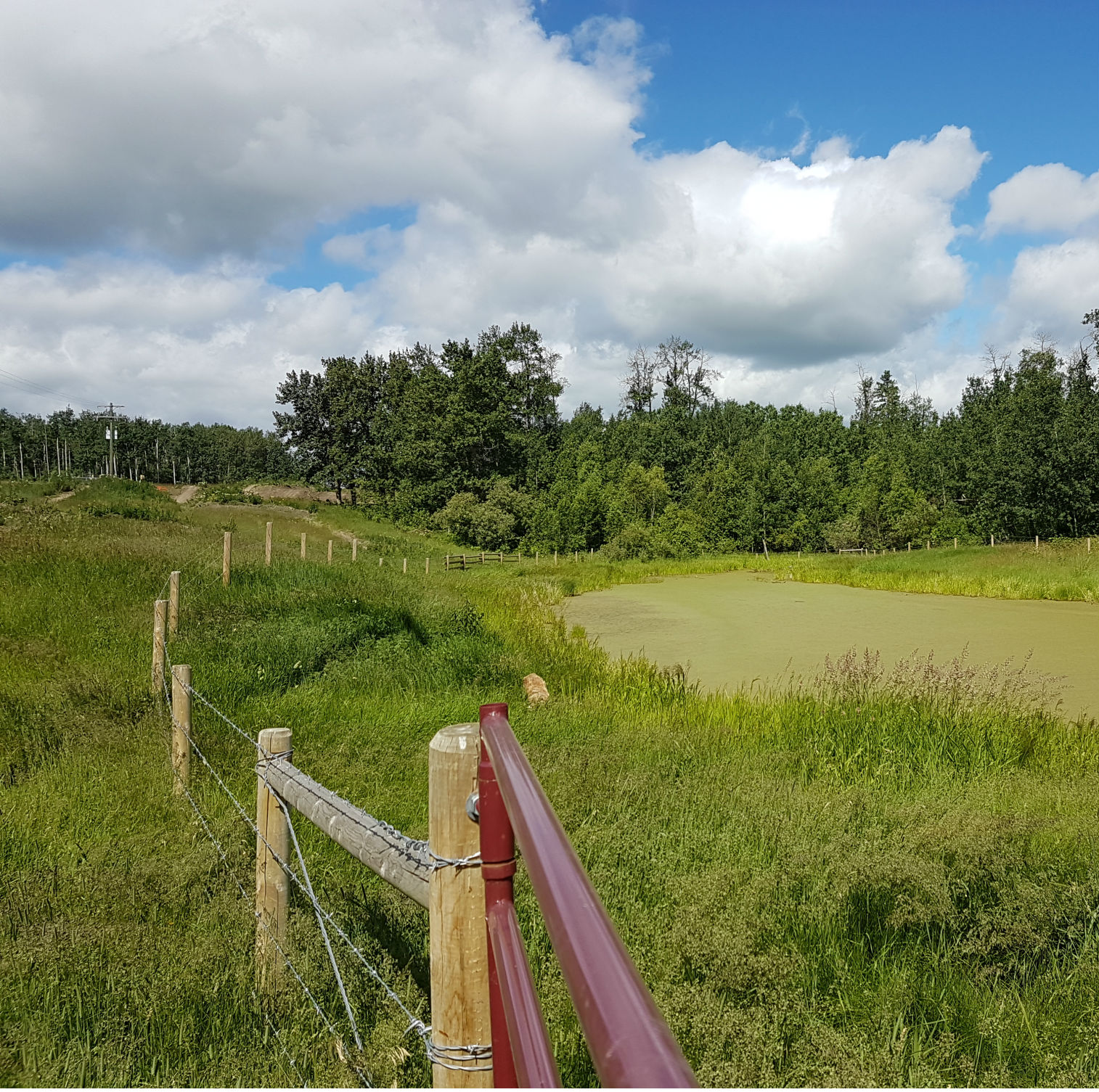
Pearl has enrolled 3.5 acres in ALUS, including new fencing to exclude cattle from two wetlands. This keeps the water clean and allows native vegetation to return, enhancing biodiversity and producing many more ecosystem services that benefit the community.
Gregor is a retired educator who brought environmental concepts into her classroom long before it was part of the curriculum. Pearl and her husband Bill purchased the property in 1973, and operated a pastured beef cow/calf operation throughout Pearl’s teaching career. In the years since Bill’s untimely passing, Pearl has maintained the farm with help from family and neighbours. The farm’s 211 acres provide the capacity for 70 head of cattle, but Pearl has downsized to 20 head in recent years in response to recurring drought.
“ALUS is planting wetlands,” she says, “and I think that is a step in the right direction.”
Gregor has enrolled 3.5 acres in ALUS to date, and these few acres really pack a punch. They contain no less than eight ALUS projects in total: new fencing to exclude cattle from two wetlands, an indirect watering system for these cattle, and a plantation of willow cuttings along her eastern wetland.
These ALUS projects are intended to produce ecosystem services with important benefits for the community. For example, excluding cattle from the wetlands produces cleaner water and allows native vegetation to return, enhancing biodiversity.
This increased biodiversity is already becoming apparent, particularly in the eastern wetland where ducks are nesting and a pair of beaver has taken up residence.
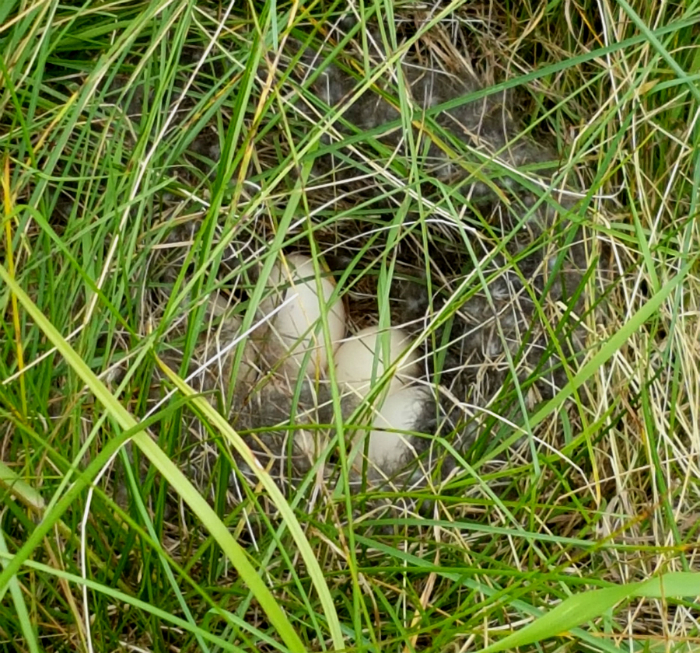
Another ALUS project on the Gregor farm is a plantation of willow cuttings along a wetland, intended to enhance the habitat available for wildlife. Increased biodiversity is already becoming apparent in this area, where ducks are nesting and a pair of beaver has taken up residence.
For inspiration, Gregor points to Michael Yahgulanaas’ book, Flight of the Hummingbird: A Parable for the Environment (see video here) which validates the approach that everyone can take small steps toward environmental responsibility.
“It’s not the biggest project in the world, but I’m doing what I can,” says Gregor.
According to Kim Barkwell, ALUS is not Gregor’s only current project: She is also publishing a book, entitled I the Woman Planted the Tree. And, on a totally different note, she is starting a new project, called “Dream Sanctuary,” this summer.

